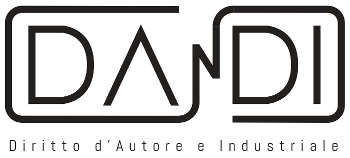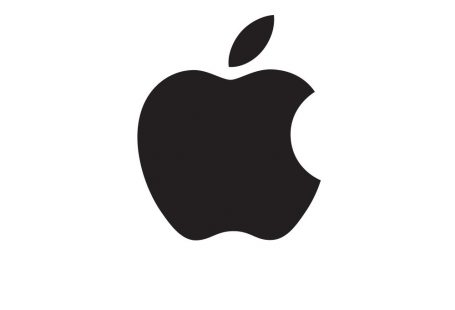Big Data Revolution: Ten Legal Perspectives
The term “Big Data” has invaded (also) the legal debate, despite its inevitably fuzzy notion. Associated with it are the terms “Internet-of-things” and “Data driven innovation”.
We shall not attempt to provide yet another description of the phenomenon. We shall take it for granted that the reader has some background knowledge on these topics. And at any rate he/she can be usefully referred to the over 400 page report by the OECD on “Data driven innovation” issued in October 2015 which contains the acquired knowledge and provides technical, economic and socio-political data and analysis which are useful to understand the setting in which we suggest some legal insights.
Clearly, the “ten legal perspectives” are simply conventional, and do not wish to mold in a lawyer’s plate a very mobile phenomenon, which is likely to have already changed when this article will have been published. The aim is more of a methodological nature.
Those who have studied the impact that digital technologies have had on the law, should have learned in the last four decades that the attempts to set rules for the future are scarcely rewarding.
Turning the philosophical paradox straight, lawyers, who are the tortoises, will never catch up with the technologies, which are Achilles. But they can – and should – avoid falling for the dernier-cri.
Trying to provide comprehensive and holistic points of reference appears to be much more productive. Digital technologies are always innovative and disruptive. But so were trains, electricity, telegraph, automobiles, radios and television sets etc. A historical perspective, therefore, is always sobering.
One further preliminary remark: civil lawyers like to organize social and economic phenomena into their categories which have been forged in the last two thousand years. Clearly there is path-dependency. But if those paths led nowhere they would have discarded them a long time ago.
We shall be using many traditional private law categories, not because they are the only ones, or are the only way to try to put order in complexity, but because in the drawers and on the shelves which metaphorically a civilian uses we can find many similar legal objects and problem-solving tools.
Access to data
Data are – in an economic perspective – non-rivalrous and non-consumable public goods.
Does this mean than anybody or that qualified third parties may have access to data?
Here the issue of ownership is inter-twined with those of competition law.
Generally the discussion on big data is associated with that on “open data”.
a) It is well known that public authorities, both national and local, have been and still are among the most important “producers” of data. Statistical data of all kinds are among the most obvious public “big data” but there are many other ambits in which huge amounts of data are collected but scarcely used. In the EU, Directive 2013/37 sets rules on the re-use of public sector information.
The declared aim is that of making such information available on a non-discriminatory, near-to cost basis, with some notable exceptions such as cultural heritage data and metadata, in order to favour the knowledge society.
It is, however, far from clear how the Directive fits in the “big data revolution”. One of the factors which have turned data in an essential element of presentday economy is its dynamicity, in the production, in the processing, in the consumption.
Public data, instead – at least that envisaged by Directive 2013/37 – is mainly static and (out)-dated, which therefore is of limited importance and value. Although there are significant areas in which public authorities are promoting of data-driven services (e.g. “smart cities”) it remains to be decided whether they are under an obligation of rendering such data available to third parties in real-time.
Typical examples are those of a great number of enterprises (restaurants, cafés, taxis, shop owners) who would dearly need to know from the airport or main train station managers how many people are expected – and are actually arriving – in a town for a certain event (a sports event, a concert, a rally, etc.).
b) This kind of data is, instead, collected by a number of semi-public entities, mainly operating in the field of public utilities and in services of general economic interest (SGEI, in EU acronym). Some of these entities are in the public hand in the sense that they are controlled by the State or by local authorities. Others, instead, are private business entities which are entrusted – often on an exclusive basis – with a public service remit. These entities clearly are operating in the market and therefore use the data they collect to strengthen their market position26. In EU legislation one can find various examples (especially in the transport sector) in which they may have to share with competitors certain information, even in real-time (e.g. delay in connections).
These cases however confirm that while it may be necessary and in the general interest that certain data should be made available to third parties, this can only be on the basis of specific normative provisions. There does not appears to be to a general rule establishing limited ownership rights over data, or to see things from a different perspective one cannot envisage a general right to access data of a third party, unless there is a normative or administrative entitlement .
c) These last conclusions might be read as excluding the possibility to access data (and big data) held by private entities. However one should not forget that if data is considered an essential infrastructure of digital economy competition rules might be used to oblige the data holder to provide this information to competitors. The principle is embedded in software protection legislation where it allows reverse engineering (i.e. access to information and algorithms governing it) in order to develop inter-faces29. Or in the ECJ Magill case where information on tv programming was considered an essential facility.
The issue will be further analyzed in a following paragraph. What should be considered is that entitlement, ownership and property rights may be limited or established through many legal paths.
Zeno-Zencovich, Vincenzo and Giannone Codiglione, Giorgio, Ten Legal Perspectives on the ‘Big Data Revolution’ (September 3, 2016). Concorrenza e Mercato (Giuffrè Publisher, Milan, Italy), Forthcoming. Available at SSRN: http://ssrn.com/abstract=2834245
Dandi Law Firm provides legal assistance in Copyright and New Media. Check out our Services or contact Us!





